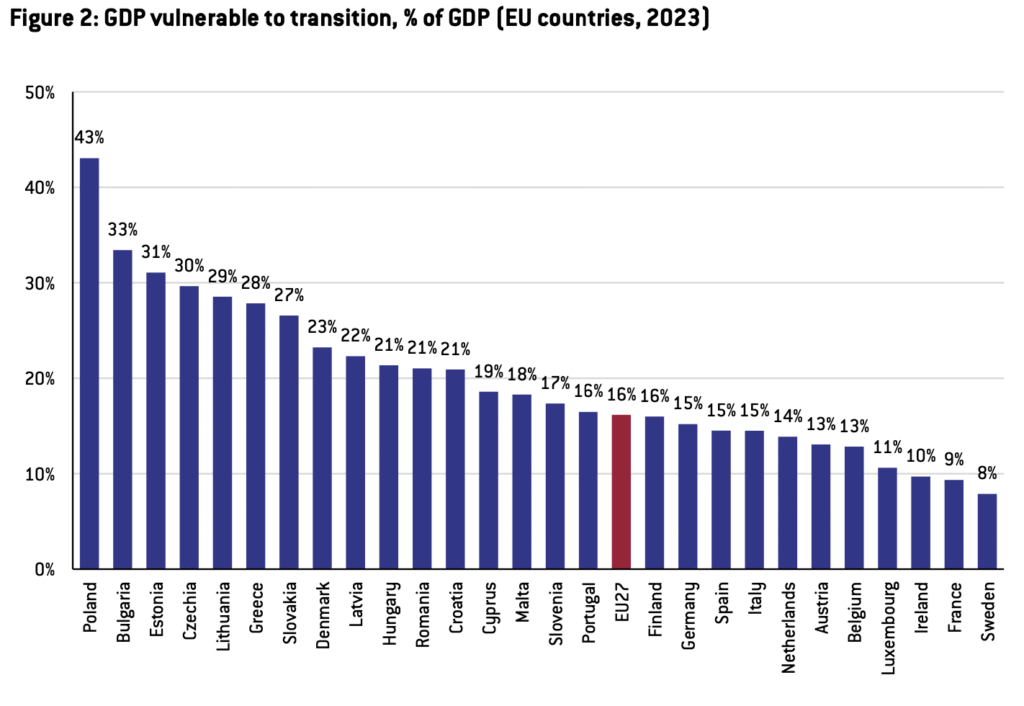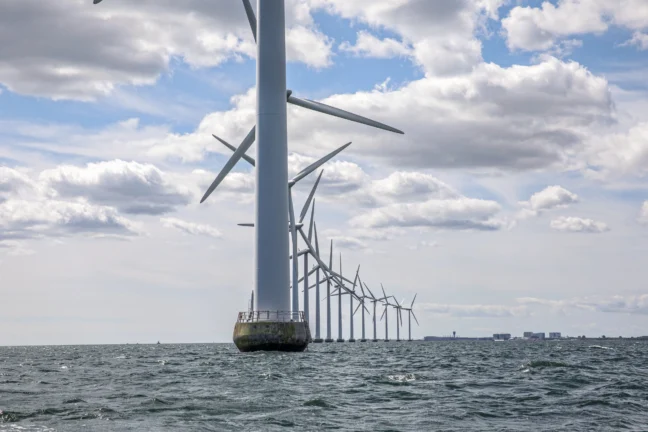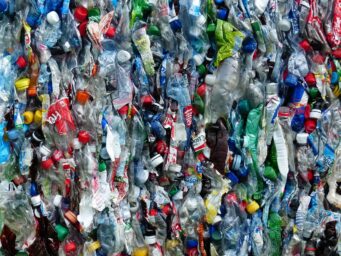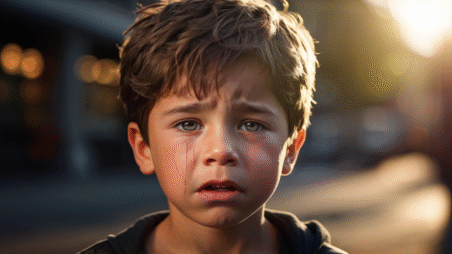Europe’s shift to a low-carbon economy won’t hit every country equally hard. A new study from Brussels-based think tank Bruegel warns that coal-dependent economies like Poland and Bulgaria face far higher GDP risks from the transition than climate frontrunners such as Sweden and France.
Bruegel researchers developed a two-step model to measure how much of each country’s economy is vulnerable to the green shift. First, they looked at which sectors are most exposed to transition risk—from energy and heavy industry to transport. Then they assessed how well those sectors are prepared, using carbon intensity as a key measure.

The conclusion is stark, if to be expected. Countries with dirtier energy mixes and carbon-intensive industries stand to lose the most if the EU accelerates climate action. Sweden and France, thanks to hydropower and nuclear energy, are relatively shielded. By contrast, Poland’s reliance on coal makes its economy especially fragile.
Sector-by-sector analysis further sharpens the picture. Manufacturing, the EU’s largest exposed sector, shows some of the deepest divides. Luxembourg, Malta and Ireland face relatively little GDP at risk in manufacturing. On the other hand, Slovakia, Poland and Bulgaria face far larger exposures, with carbon intensity in their manufacturing industries nearly 10 percent above the EU average.
“Most results are as expected but there are also surprises,” the authors note. While most Scandinavian countries confirm that as usual, they are among the best prepared, Denmark proves an exception with an exposure of 23 percent of GDP, exceeding the EU average. The reason, the authors write, is that Denmark has very high shares of GDP facing transition in transport, because of their large international shipping sector—a very carbon heavy field.
You might be interested
How to soften the blow?
The paper’s authors argue the findings should shape EU and national policy. Governments can soften the blow by taxing high-carbon technologies, subsidizing clean alternatives, and retraining workers to shift into low-carbon sectors. But delay only raises the eventual bill.
“Transition risk is GDP at risk,” the authors note, underscoring that the EU’s Green Deal is as much about economic resilience as it is about cutting emissions.











